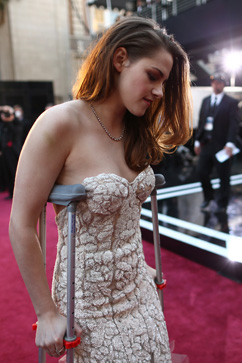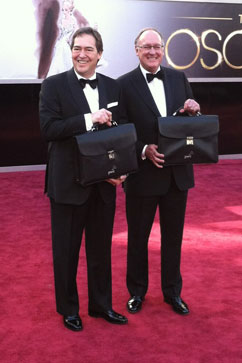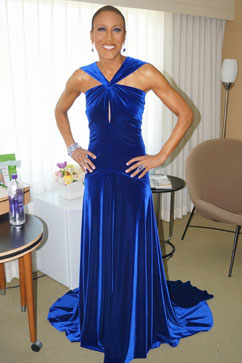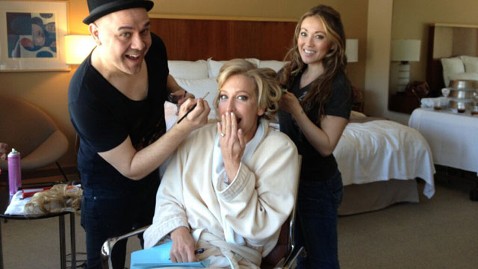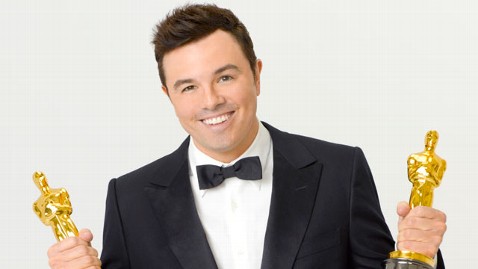NEW YORK (AP) — Dr. C. Everett Koop has long been regarded as the nation's doctor— even though it has been nearly a quarter-century since he was surgeon general.
Koop, who died Monday at his home in Hanover, N.H., at age 96, was by far the best known and most influential person to carry that title. Koop, a 6-foot-1 evangelical Presbyterian with a biblical prophet's beard, donned a public health uniform in the early 1980s and became an enduring, science-based national spokesman on health issues.
He served for eight years during the Reagan administration and was a breed apart from his political bosses. He thundered about the evils of tobacco companies during a multiyear campaign to drive down smoking rates, and he became the government's spokesman on AIDS when it was still considered a "gay disease" by much of the public.
"He really changed the national conversation, and he showed real courage in pursuing the duties of his job," said Chris Collins, a vice president of amfAR, the Foundation for AIDS Research.
Even before that, he had been a leading figure in medicine. He was one of the first U.S. doctors to specialize in pediatric surgery at a time when children with complicated conditions were often simply written off as untreatable. In the 1950s, he drew national headlines for innovative surgeries such as separating conjoined twins.
His medical heroics are well noted, but he may be better remembered for transforming from a pariah in the eyes of the public health community into a remarkable servant who elevated the influence of the surgeon general — if only temporarily.
"He set the bar high for all who followed in his footsteps," said Dr. Richard Carmona, who served as surgeon general a decade later under President George W. Bush.
Koop's religious beliefs grew after the 1968 death of his son David in a mountain-climbing accident, and he became an outspoken opponent of abortion. His activism is what brought him to the attention of the administration of President Ronald Reagan, who decided to nominate him for surgeon general in 1981. Though once a position with real power, surgeon generals had been stripped of most of their responsibilities in the 1960s.
By the time Koop got the job, the position was kind of a glorified health educator.
But Koop ran with it. One of his early steps involved the admiral's uniform that is bestowed to the surgeon general but that Koop's predecessors had worn only on ceremonial occasions. In his first year in the post, Koop stopped wearing his trademark bowties and suit jackets and instead began wearing the uniform, seeing it as a way to raise the visual prestige of the office.
In those military suits, he surprised the officials who had appointed him by setting aside his religious beliefs and feelings about abortion and instead waging a series of science-based public health crusades.
He was arguably most effective on smoking. He issued a series of reports that detailed the dangers of tobacco smoke, and in speeches began calling for a smoke-free society by the year 2000. He didn't get his wish, but smoking rates did drop from 38 percent to 27 percent while he was in office — a huge decline.
Koop led other groundbreaking initiatives, but perhaps none is better remembered than his work on AIDS.
The disease was first identified in 1981, before Koop was officially in office, and it changed U.S. society. It destroyed the body's immune system and led to ghastly death, but initially was identified in gay men, and many people thought of it as something most heterosexuals didn't have to worry about.
U.S. scientists worked hard to identify the virus and work on ways to fight it, but the government's health education and policy efforts moved far more slowly. Reagan for years was silent on the issue. Following mounting criticism, Reagan in 1986 asked Koop to prepare a report on AIDS for the American public.
His report, released later that year, stressed that AIDS was a threat to all Americans and called for wider use of condoms and more comprehensive sex education, as early as the third grade. He went on to speak frankly about AIDS in an HBO special and engineered the mailing of an educational pamphlet on AIDS to more than 100 million U.S. households in 1988.
Koop personally opposed homosexuality and believed sex should be saved for marriage. But he insisted that Americans, especially young people, must not die because they were deprived of explicit information about how HIV was transmitted.
Koop's speeches and empathetic approach made him a hero to a wide swath of America, including public health workers, gay activists and journalists. Some called him a "scientific Bruce Springsteen." AIDS activists chanted "Koop, Koop" at his appearances and booed other officials.
"I was walking down the street with him one time" about five years ago, recalled Dr. George Wohlreich, director of the College of Physicians of Philadelphia, a medical society with which Koop had longstanding ties. "People were yelling out, 'There goes Dr. Koop!' You'd have thought he was a rock star."
Koop angered conservatives by refusing to issue a report requested by the Reagan White House, saying he could not find enough scientific evidence to determine whether abortion has harmful psychological effects on women.
He got static from some staff at the White House for his actions, but Reagan himself never tried to silence Koop. At a congressional hearing in 2007, Koop spoke about political pressure on the surgeon general post. He said Reagan was pressed to fire him every day.
After his death was reported Monday, the tributes poured forth, including a statement from New York Mayor Michael Bloomberg, who has made smoking restrictions a hallmark of his tenure.
"The nation has lost a visionary public health leader today with the passing of former Surgeon General C. Everett Koop, who was born and raised in Brooklyn," Bloomberg said. "Outspoken on the dangers of smoking, his leadership led to stronger warning labels on cigarettes and increased awareness about second-hand smoke, creating an environment that helped millions of Americans to stop smoking — and setting the stage for the dramatic changes in smoking laws that have occurred over the past decade."
Dr. Anthony Fauci of the National Institutes of Health taught Koop what was known about AIDS during quiet after-hours talks in the early 1980s and became a close friend.
"A less strong person would have bent under the pressure," Fauci said. "He was driven by what's the right thing to do."
Carmona, a surgeon general years later, said Koop was a mentor who preached the importance of staying true to the science in speeches and reports — even when it made certain politicians uncomfortable.
"We remember him for the example he set for all of us," Carmona said.
Koop's nomination originally was met with staunch opposition. Women's groups and liberal politicians complained Reagan had selected him only because of his conservative views, especially his staunch opposition to abortion.
Foes noted that Koop traveled the country in 1979 and 1980 giving speeches that predicted a progression "from liberalized abortion to infanticide to passive euthanasia to active euthanasia, indeed to the very beginnings of the political climate that led to Auschwitz, Dachau and Belsen."
But Koop, a devout Presbyterian, was confirmed as surgeon general after he told a Senate panel he would not use the post to promote his religious ideology. He kept his word and eventually won wide respect with his blend of old-fashioned values, pragmatism and empathy.
Koop was modest about his accomplishments, saying before leaving office in 1989, "My only influence was through moral suasion."
The office declined after that. Few of his successors had his speaking ability or stage presence. Fewer still were able to secure the support of key political bosses and overcome the meddling of everyone else. The office gradually lost prestige and visibility, and now has come to a point where most people can't name the current surgeon general. (It's Dr. Regina Benjamin.)
Even after leaving office, Koop continued to promote public health causes, from preventing childhood accidents to better training for doctors.
"I will use the written word, the spoken word and whatever I can in the electronic media to deliver health messages to this country as long as people will listen," he promised.
In 1996, he rapped Republican presidential hopeful Bob Dole for suggesting that tobacco was not invariably addictive, saying Dole's comments "either exposed his abysmal lack of knowledge of nicotine addiction or his blind support of the tobacco industry."
He maintained his personal opposition to abortion. After he left office, he told medical students it violated their Hippocratic oath. In 2009, he wrote to Senate Majority Leader Harry Reid, urging that health care legislation include a provision to ensure doctors and medical students would not be forced to perform abortions. The letter briefly set off a security scare because it was hand delivered.
Koop served as chairman of the National Safe Kids Campaign and as an adviser to President Bill Clinton's health care reform plan.
Worried that medicine had lost old-fashioned caring and personal relationships between doctors and patients, Koop opened an institute at Dartmouth College in New Hampshire to teach medical students basic values and ethics. He also was a part-owner of a short-lived venture, drkoop.com, to provide consumer health care information via the Internet.
Koop was the only son of a Manhattan banker and the nephew of a doctor. He said by age 5 he knew he wanted to be a surgeon and at age 13 he practiced his skills on neighborhood cats. He attended Dartmouth, where he received the nickname Chick, short for "chicken Koop." It stuck for life.
He received his medical degree at Cornell Medical College, choosing pediatric surgery because so few surgeons practiced it. In 1938, he married Elizabeth Flanagan, the daughter of a Connecticut doctor. They had four children. Koop's wife died in 2007, and he married Cora Hogue in 2010.
He was appointed surgeon-in-chief at Children's Hospital in Philadelphia and served as a professor at the University of Pennsylvania School of Medicine. He pioneered surgery on newborns and successfully separated three sets of conjoined twins. He won national acclaim by reconstructing the chest of a baby born with the heart outside the body.
Although raised as a Baptist, he was drawn to a Presbyterian church near the hospital, where he developed an abiding faith. He began praying at the bedside of his young patients — ignoring the snickers of some of his colleagues.
___
Contributing to this report were Associated Press writers Wilson Ring in Montpelier, Vt.; Jeff McMillan in Philadelphia; and AP Medical Writer Lauran Neergaard in Washington.


